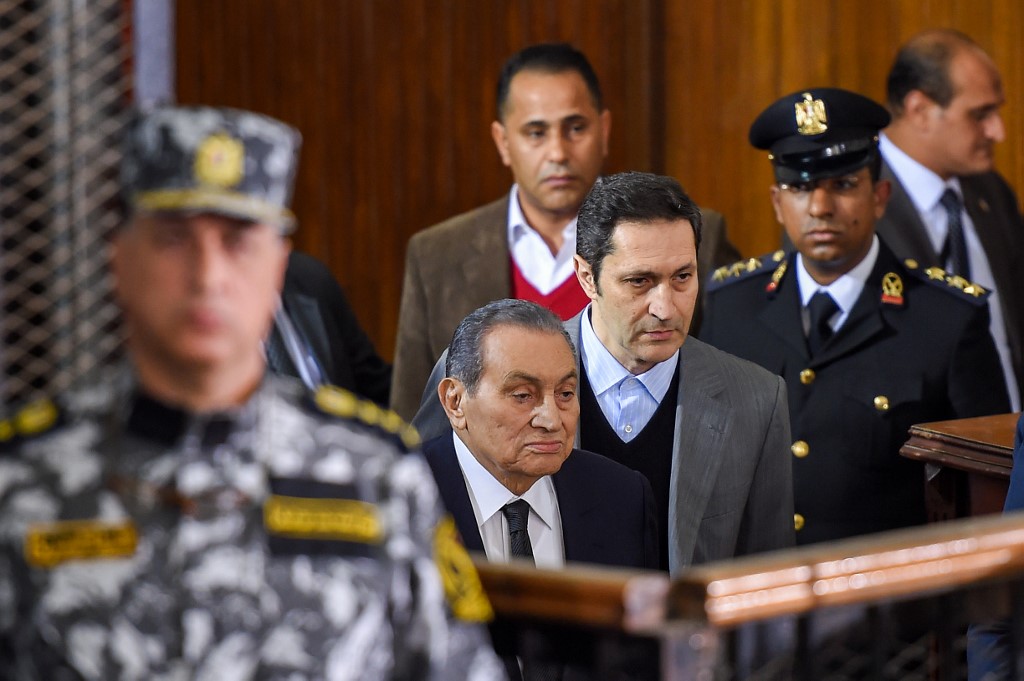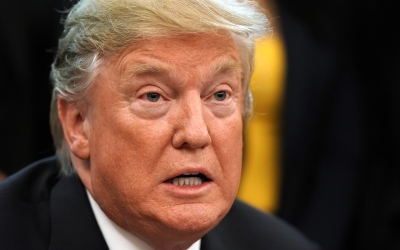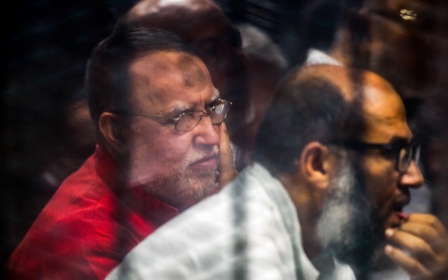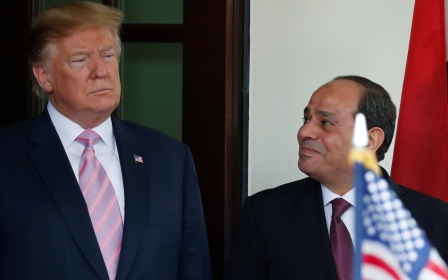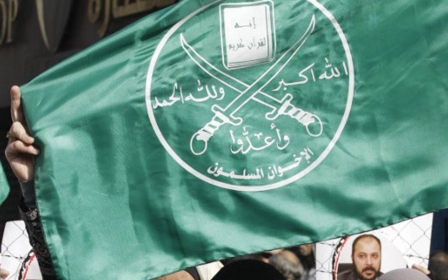The Muslim Brotherhood and Washington's misguided Middle East policy
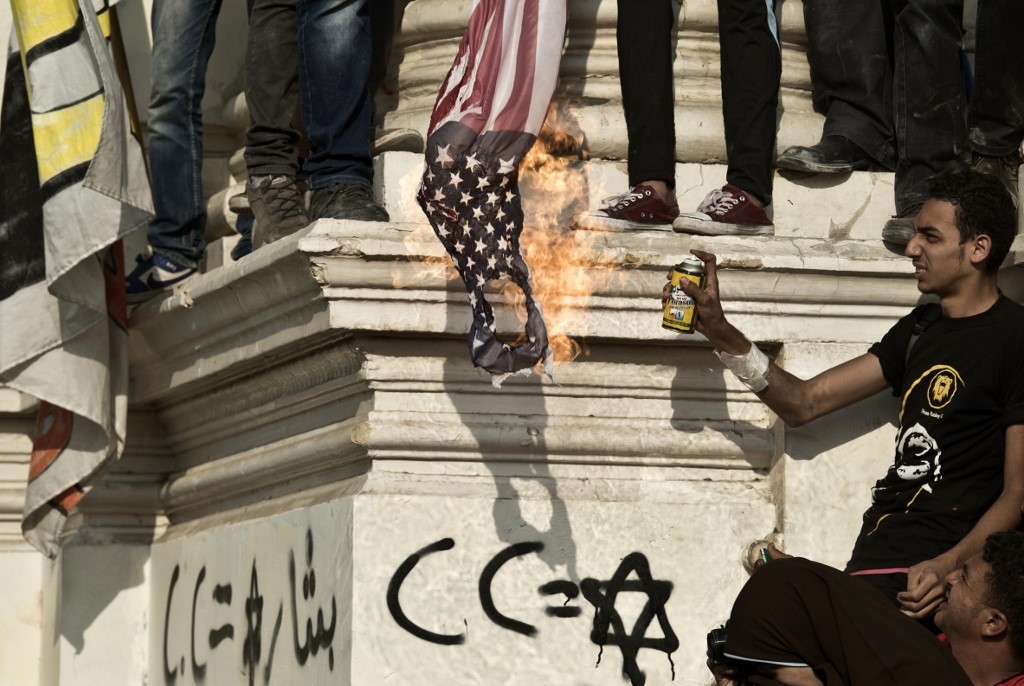
As Murphy's law states, "whatever can go wrong, will go wrong". Based on some of the decisions taken by Washington in the last two decades, it seems this law can broadly be applied to US policy in the Middle East.
Just look at what recent US presidents have got up to. Bill Clinton mismanaging the Middle East peace process and blaming former Palestinian leader Yasser Arafat. George W Bush invading Iraq in 2003. Barack Obama acknowledging the "shit show" wrought on Libya after the 2011 uprising.
Yet, it is President Donald Trump who has implemented Murphy's law at full steam, with decisions that include withdrawal from the Iran nuclear deal, renewed sanctions on Tehran, the recognition of Jerusalem as Israel's capital, accepting Israeli control over the occupied Golan Heights, and the cancellation of aid funds for Palestinian refugees.
Despite CIA warnings against it, another epic move is on the horizon: the designation of the Muslim Brotherhood as a terrorist entity.
Disconnected from reality
New MEE newsletter: Jerusalem Dispatch
Sign up to get the latest insights and analysis on Israel-Palestine, alongside Turkey Unpacked and other MEE newsletters
If this decision indeed comes in response to a request from Egyptian President Abdel Fattah el-Sisi, who visited Washington in April, it would speak volumes about the depressing state of US policy in the Middle East.
In fact, it would seem the White House increasingly resembles a jukebox: depending on how many coins a visitor inserts into the beltway's machinery, it may find the Trump administration ready to adopt policies and narratives that are disconnected from reality, irrespective of US interests.
The Muslim Brotherhood, one of the oldest and most important organisations promoting political Islam, has exerted a huge influence on the Middle East's contemporary history. It was created roughly a century ago, and has challenged British rule in Egypt and Baathism in Syria and Iraq. To a certain extent, it also influenced the Iranian Revolution.
The Brotherhood is feared by many Arab governments because it advocates a bottom-up approach to power
It has been crushed many times, but its social appeal continues. In recent years, it has been one of the Arab Spring's main drivers and involuntary beneficiaries, with encouraging results in Tunisia and tragic ones in Syria.
The Brotherhood is feared by many Arab governments because it advocates a bottom-up approach to power: an existential threat to many regional autocracies, reflecting the complex conjunction of Islamic law and the people's will.
Through its turbulent history, the Brotherhood has nonetheless made its compromise with Western modernity and political thinking, accepting regular and fair elections.
Legacy of corruption
But as far the as the Arab world is concerned, there is an important nuance to free and fair elections: the so-called "international community" (the US and its allies) will accept people's wishes only if they select the "right leaders".
In the Middle East, this means leaders who nurture pro-Western views, are friendly to Israel and critical of Iran. Unfortunately, the Brotherhood has failed in all the requirements for admission to this club.
The crucial months between 2012 and 2013, when the MB held power in Egypt, provide a case study for assessing the potential consequences of the latest, misguided US decision.
During its year in government, the Brotherhood likely didn't even have enough time to remove former president Hosni Mubarak's portraits from the walls of public offices - yet the group has been blamed for the disastrous state of Egyptian governance, despite the long legacy of misrule and corruption by the previous ruling elite.
Although some Brotherhood ideologues originated some radical currents of Islam, three crucial points should be kept in mind: the group has agreed to play by Western electoral rules, has distanced itself from violence and has been openly criticised by real terrorist groups, such as al-Qaeda and the Islamic State, for these choices.
No Western government, particularly the US, has been willing to draw the right conclusions from these facts and act accordingly.
If and when a chance to get power should arise again, the Muslim Brotherhood - scalded by the negative Egyptian experience of 2012-13 - may decide to behave quite differently, following the Iranian model, with the creation of a force such as the Revolutionary Guards to defend the new political order. Then, once again, an opportunity for better cooperation between Islam and the West will be lost.
A grim conclusion
If the US was genuinely interested in dealing constructively with political Islam in the Middle East - an unavoidable option if it genuinely aspires to regional stabilisation and development - it would have seriously engaged the Brotherhood, ignoring the biased "advice" of certain Arab governments interested in maintaining their grip on power.
To think that it is possible to conduct a serious, constructive and sustainable political engagement with the peoples of the Middle East without dealing with political Islam is nonsense. When will Washington understand that its own policy must adjust to reality, and not the other way around?
Realism and common sense appear to be increasingly rare commodities in the US foreign policy sphere. Once again, the gloomy conclusion is that Murphy's law maintains its grip on the Western superpower.
The views expressed in this article belong to the author and do not necessarily reflect the editorial policy of Middle East Eye.
Middle East Eye delivers independent and unrivalled coverage and analysis of the Middle East, North Africa and beyond. To learn more about republishing this content and the associated fees, please fill out this form. More about MEE can be found here.



